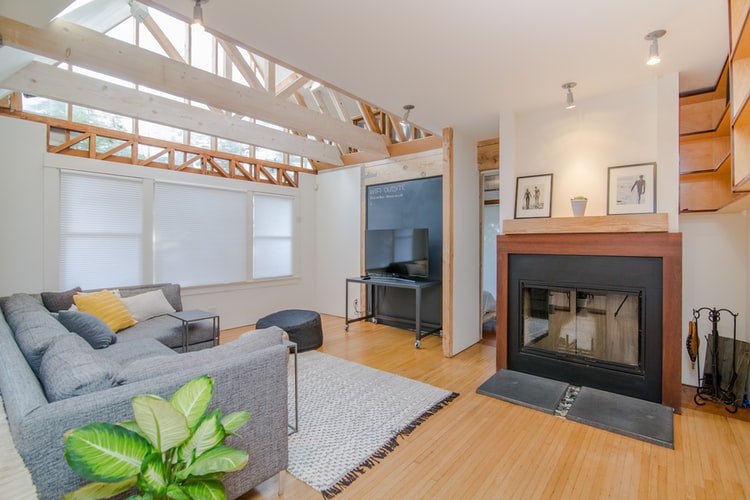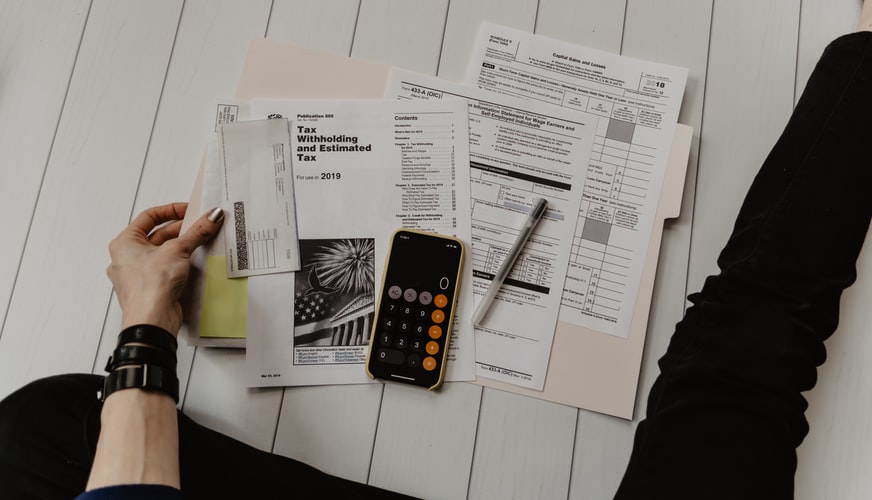Selling your house is a huge milestone in everybody’s life and the biggest business move for most people. That’s why you should conduct thorough research on every aspect of a real estate sale before getting on with it. You want to maximize your profit and avoid any unnecessary costs.
Capital gains tax is usually the largest financial cut on your profit when selling a house. But there are legal ways to minimize or even avoid this tax. You’re probably familiar with the term, but it’s very important to learn more about capital gains in order to make a profitable sale, whether you’re a residential owner or a flipper.
What Is a Capital Gain?

Capital gain is the profit you make by making a major sale of bonds, jewelry, precious metals, a house, and similar valuable goods whose value has increased since the moment of your purchase. The tax you pay on that profit is different from regular yearly income tax.
While capital gains are usually taxed more favorably than regular income, it’s not always the case. There are several factors that determine the taxation of your capital gain: the laws of your state (although this is a pretty federalized matter), the time you spent living in the house before the sale, was it a primary or secondary home, your marital status, or the money invested in the house after the purchase.
One of the key factors is whether you’re making a short-term or a long-term capital gain. That’s why it’s important to learn the difference between the two and recognize your status.
Short-Term Capital Gains
When you’re selling a house after you’ve owned it for less than a year, you’re making a short-term capital gain. This is often the case with flipping; you have bought and probably improved the house and are looking to sell it as soon as possible.
Short-term capital gains are taxed similarly to regular income, which means they are usually higher than the long-term capital gains taxes. They vary up to 37%, depending on your state’s law and your tax bracket. In California, you’re most likely to pay around 15% of your profit.
However, you can end up paying even more, since the short-term capital gains are being added to your regular yearly income and can move your overall income into a higher tax bracket. This implies that, unless you’re a regular flipper who knows the math, your best option is to hold the house for more than a year.
Long-Term Capital Gains
When you’re selling the assets that you have been holding for more than a year, you’re making a long-term capital gain. As mentioned before, the tax rates here are usually lower than with ordinary income or long-term capital gains.
Depending on the profits, the tax rates will either lean towards 0%, 15%, or 30%. Most sellers who achieve long-term capital gains end up paying less than 15%. Aside from the amount of profit, the rates vary based on a couple of other factors, such as the function of your house before the sale.
Selling Your Primary Residence
If the house you’re selling wasn’t at all your primary residence, you’ll be obliged to pay the capital gains tax in most states. However, if you’re selling a house that you have lived in for at least two out of the five previous years, you’re eligible for the tax exclusion on profits up to $250.000.
If you’re married and are filing for tax exclusion with your spouse, you can exclude the taxes on profits up to $500.000. You can’t expect a tax exclusion if you’re selling your secondary residence, but you can anticipate this by making both homes a primary residence for two years in a five-year timeframe.
Furthermore, If you’ve already filed for exclusion for another asset in the two-year period prior to this sale, you’re not eligible for exclusion.
Adding Home Improvement Expenses to the Cost Basis

The cost basis usually represents the original price you’ve paid for the house. However, it can keep growing after the purchase. It is very important to save all your bills for any improvements you’ve made to the house after you bought it because you can add them to your cost basis.
If you increase your cost basis by adding these bills, your capital gains will appear lower. This also means that the tax rates on your capital gains will decline.
However, please note that this doesn’t include necessary repairs and maintenance, such as painting, changing the sewer, fixing a leaking roof, etc. This only stands for applications that increase the value of the property, such as a new kitchen, a pool, a new porch, and similar.
Also, you shouldn’t rely on this to the extent that you purposely make excessive improvements in order to someday apply for tax deduction; all of this is eligible for deliberation.
The Cost Basis for Inherited Property
If you’ve inherited the property you’re selling, you’re still expected to pay the capital gains tax, but you’re also still eligible for deduction or exclusion. All of the previously mentioned conditions are still in the effect, but the cost basis is formed somewhat differently.
For example, the price that your late ancestor has paid for the house in the past is not considered to be the cost basis. The cost basis in these cases will be formed based on the fair market value of the house at the moment you inherited it. This is called a step-up basis.
Naturally, this is good for you, because if the cost basis for your inherited house was the original pre-inflation price it was bought at, your capital gains would skyrocket, probably making you ineligible for a tax deduction or exclusion.
This implies that it might be wise to sell the house soon after you inherit it before it goes up in value. If you don’t have the time to deal with this, there are companies that will buy your house and close the sale within a week.
What Have We Learned?
Now you see how understanding capital gains can save you a lot of money. By acknowledging all of the important conditions mentioned in this article, you can plan on how to get yourself in a position where you can exclude basically any taxes on your sale.
Make sure to hold the house for more than a year, try making it your primary residence for more than two years, keep all of your home improvement bills, convince your spouse to file for tax exclusion together, and you will most likely avoid any taxes on capital gain and maximize your profit.
Read Also:




























